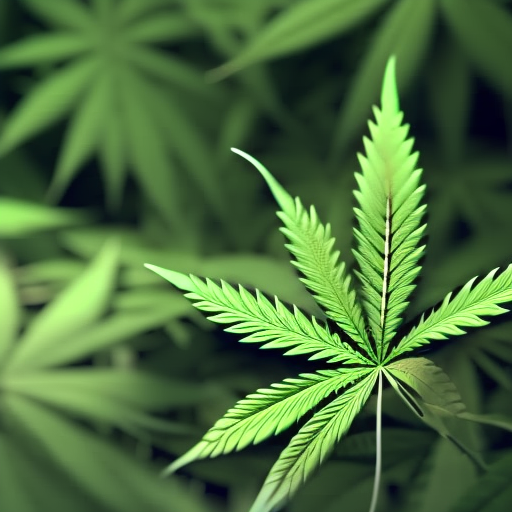 A recent study conducted by CBD Nationwide, the largest cannabidiol manufacturer in the U.S., has found that there is a significant increase in internet search interest for delta-8 THC in states where marijuana is still criminalized. The study analyzed online search data from Google Trends and discovered that searches for delta-8 THC were 1.9 times higher in states where adult-use cannabis is illegal. This indicates a growing interest in alternative cannabinoids due to cannabis bans.
A recent study conducted by CBD Nationwide, the largest cannabidiol manufacturer in the U.S., has found that there is a significant increase in internet search interest for delta-8 THC in states where marijuana is still criminalized. The study analyzed online search data from Google Trends and discovered that searches for delta-8 THC were 1.9 times higher in states where adult-use cannabis is illegal. This indicates a growing interest in alternative cannabinoids due to cannabis bans.
Delta-8 THC has gained popularity, especially in states where marijuana remains illegal, because it can be easily accessed online as well as at convenience stores, gas stations, and smoke shops. This cannabinoid is typically derived from hemp, which is federally legal, or synthesized from other components of the crop.
The study found statistically significant differences in delta-8 THC search interest between states with different marijuana policies. The p-value, which measures the likelihood of random chance, was approximately 0.000000655. This means that the disparity in search data between legal and illegal cannabis states is highly unlikely to be due to chance.
According to CBD Nationwide, the increased search interest in states where recreational cannabis is illegal suggests a shift towards these alternative substances. Individuals may be seeking legal avenues to achieve similar effects to those of traditional marijuana. Previous research has shown an 850% increase in Google searches for delta-8 THC in 2021 alone.
The study aligns with another federally funded study published by the American Medical Association (AMA) last year, which found that states where marijuana is prohibited may unintentionally promote delta-8 THC products. This dynamic has been exacerbated by the legalization of hemp and its derivatives under the 2018 farm bill.
Interestingly, the study also revealed that interest in delta-9 THC, the primary psychoactive component of marijuana, is higher in illegal states compared to legal ones. States without legal cannabis showed 1.27 times more search activity for delta-9 THC. Even in states where marijuana is legal, there continues to be interest in delta-8 THC.
The study utilized analysis of variance (ANOVA) and Tukey’s Honestly Significant Different (HSD) tests to confirm the significance of the findings. However, it’s important to note that the study did not determine the context of the searches. It’s unclear whether individuals in illegal states were specifically seeking out products containing these cannabinoids or researching current laws and scientific findings.
There are differing opinions on how to address emerging cannabinoids among lawmakers, advocates, and industry stakeholders. Some states have moved to ban or restrict their sale, while others are advocating for revised federal rules to regulate intoxicating cannabinoids separately from CBD. State marijuana regulators have urged Congress to examine policies for the broader class of emerging cannabinoids, not just CBD.
It is expected that congressional lawmakers will discuss these issues during negotiations over the next Farm Bill. The Drug Enforcement Administration (DEA) considers cannabinoids illegal if they are synthetically produced, although enforcement of this policy has been limited. The Food and Drug Administration (FDA), on the other hand, has lightly addressed emerging cannabinoid issues and has primarily focused on warning letters sent to companies unlawfully selling “copycat” delta-8 THC products.
In conclusion, this study highlights the significant increase in search interest for delta-8 THC in states where marijuana is still criminalized. It suggests a growing demand for alternative cannabinoids due to cannabis bans. Further research is needed to better understand consumer preferences and needs regarding these emerging cannabinoids.

